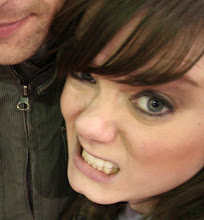Yours and Mine, Happy Days.
We are in a world where our attitude and our personalities do not appear to count for much more than an accompaniment to our possessions. Cool is sunglasses, cool is soft drinks, cool is a burger with fries, cool is a fast German, cool is running shoes, cool is a leather handbag, cool is going with the flow and never questioning the status quo. But what, exactly, is cool?
Back in the ‘Happy Days’ the epitome of cool was the Fonze. Even now, in the not so happy days, he is held in high esteem as the pinnacle of cool. His slicked back hair, his leather jacket, his denims, his attitude and suave way with women all ensured that he had what it took to be deemed as cool. I don’t think there has been anyone cooler, or that there ever will be. As the definition of cool, the Fonze’s components seem to be based upon his consumer choices, his attitude, and his ‘thumbs up’ gesture. Is this the recipe for cool? Is it still that easy?
When we were children, I’m sure, the majority of us wanted to be cool, popular and accepted. We would look at our peers and see what they were doing, see how they behaved and acted and we would behave like them so that we too would be perceived as cool. Things seemed very black and white then, you were either cool or you were a loser. You either had the recipe the Fonze did, or you didn’t. The cool kids would skip classes, have an arrogant attitude and, maybe most importantly, dress in the best and latest designs and fashions that would appear on advertising hoardings everywhere. Everyone knew which brands would make you cool and which ones would not - it appeared to be common knowledge.
The world is not that black and white though and the Fonze is a fictional character immortalised in a simpler decade. There are whole spectrums of colours that now complicate and interfere with the process of determining someone’s coolness level.
The current state of consumer affairs has left us in a position that means we are mentally under attack from advertising messages informing us about what products will make us appear cool. This increase in ethereal, intangible messages and imagery exists as an accompaniment to the overwhelming mass production of commodities and tangible objects that has occurred, subtly, during the past few decades. These increases have severely confused the meaning and equation of cool. These are not the only cultural changes: we, now, also have an extended amount of social circles and communication methods that keep us in a fleeting position where we are constantly looking for the correct objects and attitudes that bind us to a certain group of people and ensure our success and popularity within those groups; that help us to communicate and speak the same consumer language as our friends, our family and our peers.
Even the explanation of this complicated world is complicated. It is no wonder that we are all mentally strained. No one knows how to keep up, or where to turn to, which brand to choose. Every product claims to provide the same gratification. All of the brands fight over the market place with little thought to the mental confusion they cause the individual.
It is natural to want to feel self-gratification, and we are told, by advertising, that we achieve it by being cool and popular. We all search for the correct combination of commodities and attitudes; we alter whom we are around different social groups in order to impress and gain approval. There is a desire within us all that wants to be cool like the Fonze, wanting to find the right combination to be accepted, to be popular. The thing is, the cool kids were never actually cool. Cool was a concept that never really existed. The people who were deemed losers are actually the interesting people of this world.
There is no cool - it is a myth. Coolness can never actually be achieved because it is fleeting and relative to the circumstances and situations that surround an individual. The Fonze was cool because he was made that way and the audience only ever saw him in infallible situations. He is as fictional as the concept of cool – a concept that advertisers sell very well because they know a small part of every one of us seeks to achieve it. The only way to escape it all is to let go of cool and embrace the fact that we are losers.
Once we declare with confidence our pride in being losers we will sincerely see Happy Days that will most definitely rival those of our fictional friend the Fonze.


1 Comments:
I like this!
I decided I was a loser many years ago. Strange thing is - ever since then I've been a winner!
Carry on!
Post a Comment
Links to this post:
Create a Link
<< Home